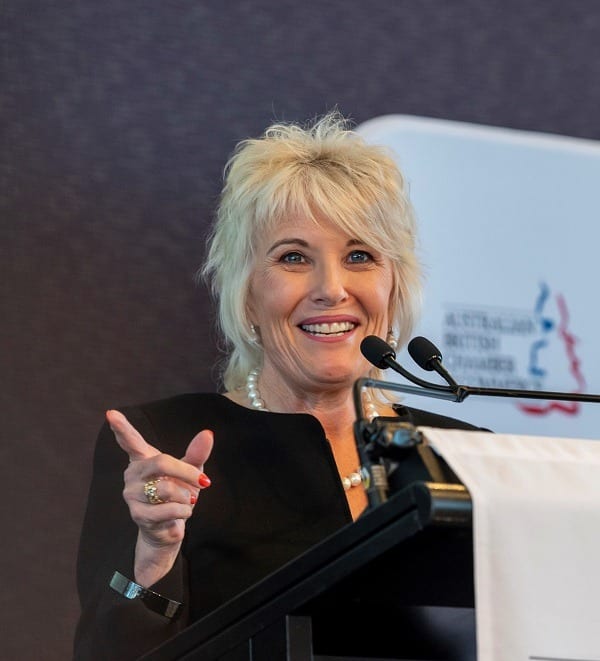She’s had a successful and wide-ranging career, working in everything from teaching, to IT and corporate affairs. Gender never seemed to be an issue and wasn’t something she spent time thinking about.
But that changed significantly when she became the Director of the federal government’s Workplace Gender Equality Agency, and came across the data that suggests, in fact, she had actually overcome many hurdles in her career, especially when compared to her male counterparts.
In episode four of the #WomenAreTheBusiness podcast by the University of Melbourne, we hear from two experts who have worked for years in the area of gender equality in the workplace. One of them is Lyons, who says over half of all Australians work in an industry that is dominated by one gender or the other.
Despite the leaps we’ve made on gender equality over the last few decades, with more women working than ever before, there is still a consistent trend that has proven hard to budge. Men still dominate industries like construction and engineering, while women do the large majority of teaching and nursing.
“The proportion of women in the female dominated industry of education and training has actually gone up over the last couple of years, which is disappointing,” Lyons says in the podcast. “In this day and age, there should be no reason for that.”
And what’s more, according to Lyons, is no matter what industry you work in, whether it be male, or female dominated, or balanced, there is a gender pay gap in favour of men in all of them.

Dr Victor Sojo, is a lecturer in leadership at the University of Melbourne and his research focuses on the different attributes of people who manage to become leaders and why it’s so hard for certain people to achieve these positions, while it’s easy for others.
As a man who studies gender equality, Sojo has noticed that people tend to think his research doesn’t have an agenda, unlike the experience of many of his female counterparts.
“People don’t think that I’m doing this for myself, that I have an ulterior motive when I’m advocating for somebody else to treated like a real human,” he says.

In Australia, we know that men are more likely to occupy positions of power, both in the public and private sector. According to Sojo, women are more likely to occupy what are considered “precarious jobs”, that tend to have lower salaries and leave you more exposed to abuse from clients or supervisors. These jobs also tend to have less job security.
The glass escalator
One phenomenon many of us have heard about is the glass ceiling – the invisible barrier that blocks women’s career progression. The glass escalator, on the other hand, is a phenomenon less talked about.
It’s the idea that men who enter female dominated work environments, like nursing or teaching, are more likely to be propped up and to be brought into leadership positions sooner than their female counterparts.
Sojo explains that even in industries that are 70 per cent female dominated, a lot of the leadership roles are gender balanced or held by men.
“Even in those environments, men are at least equally likely to get to positions of power relative to women,” he says.
And when women are left out of major decision-making processes, the consequences can be dire.
“I mean that’s one of the reasons why people keep arguing that we need to have some clear mechanisms to increase representation of women in politics.
“Because they realize that a number of the policies that were being developed were ignoring the needs of women and their children.”
This reality can also have negative consequences for men. For example, men’s requests for flexible work are twice as likely to be declined compared to women.
“In order to address the real issues of discrimination that women face in our society, we actually have to address the discrimination and bias that men face in the workplace,” Lyons says.
“Particularly around part-time work, parental leave, and flexible work because, until we manage to address those problems of discrimination, women really aren’t going to get anywhere.”
So, is there anything that can be done to challenge the gender segregated workforce and level the playing field?
Lyons thinks change will come when communities and individuals start challenging themselves and one another.
“Women don’t own the license to care. Men are great carers. They care differently,” Lyons says. “If they’re doing it on a one to one basis, that doesn’t mean that they’re bad at it, they just do it differently to the way women might do it. Men are great carers. Men make great nurses.”
It’s also a business issue, where organisations need to be accountable for achieving outcomes. Action plans are necessary to create the change, but the rewards are tangible. Organisations have better governance and corporate social responsibility when there are more women in power.
As Lyons mentions, many male dominated industries, like mining, have done a good job of creating change and bringing more women into the workforce.
“In terms of this gender segregation, we need the female dominated industries to step up and take some serious positive action at getting more men into the workplace.”
We’ll be featuring stories on all eight episodes of this podcast here on Women’s Agenda, thanks to our partnership with the Faculty of Business and Economics at The University of Melbourne.
Subscribe to the series on Spotify or Apple Podcasts.
Click here to see the full: #WomenAreTheBusiness series


